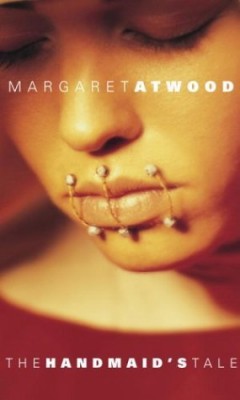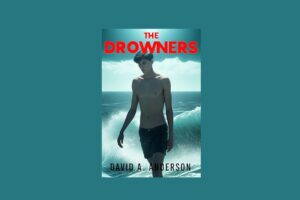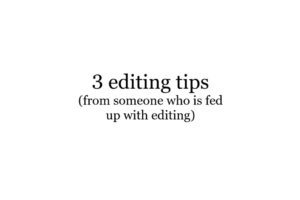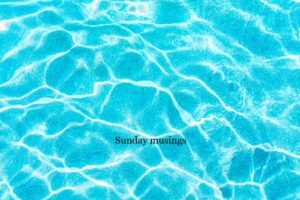 The Handmaid’s Tale by Margaret Atwood
The Handmaid’s Tale by Margaret Atwood
Do you enjoy gender segregation, ’80s throwbacks and rebellious sexy time? I most certainly do.
The novel is set in a highly religious dystopian future where, to try and gain control of America after a terrorist attack, all men are forced to be either part of a ruling class or inhabit authoritarian roles, and the women are either of the ruling class or have duties to aid their superiors. The social climate is ridiculously stifling, with men and women acting in an almost Victorian manner towards each other – although the men have a lot more freedom than the women. The magic word is ‘fertility’, and it is drummed into all citizens that the ability to produce a healthy baby is the only worthwhile desire in life. There are lots of deformed children or ‘unbabies’ born, perhaps due to some sort of chemical warfare during the terrorist attacks, but unless a child is confirmed as completely healthy it is not thought of as human at all. It is not only the children who can be rejected from society as, if a woman decides to break one of the many strict religious laws, she becomes an ‘unwoman’. This means that she will either be sent to live out her days in the ‘colonies’, publicly hanged and shown an example of or forced to undertake a less desirable role.
Events in the novel are recalled autobiographically by a handmaid named Offred. A handmaid is a fertile woman who has broken social and gender-based laws and is therefore used somewhat like a surrogate mother to produce offspring for the ruling class families. Her task is to do the dirty with the man of the house so that one of the Wives (the women married to the ruling class men) can bring up the baby.
The novel jumps back and forth in time through the main character’s life, detailing what exactly occurred in America for its society to have changed so drastically. It tells a very personal and individual story, showing how Offred lost her family, how she became a handmaid and her reactions to the tragic things she witnesses. She is not the bravest of women and is certainly no revolutionary, the world is far too scary a place for behaviour like that. What Offred demonstrates is how one would react to such a claustrophobic life and how, even with plenty of food and water and relative comfort, one can still feel tortured. She has plenty of time to reflect on her situation as she all she has to do with her day is hope and pray for a pregnancy in order to fulfil her duty. In her world if a woman has problems conceiving, she is automatically an ‘unwoman’.
Although at first I felt the plot seemed fairly implausible, it dawned on me that an event as terrifying as a terrorist attack may actually be dramatic enough to reverse social progress and create an outbreak of almost protective chauvinism. The handmaid is a lowly viewpoint to take and it seems a terrifying and horrific fate, but would I feel that life was so tragic if I was actually one of the Wives, getting my own way every day? There would be no uprising because there would be too many people enjoying their new powerful positions, and there would be too many reasons to act selfishly rather than to think of those suffering.
The subject matter of gender roles and equality is demonstrated as being as complex in this fictional world as it is in real life, and no particular moral objective seems to be adopted by the narrator. Perhaps Atwood is trying to put forward the idea that women are not as ‘on top’ as they like to believe, that feminism is temporary, or perhaps that women are indeed in control but will always appear on the outside to be of lower worth. Is the ability to produce future generations not a powerful force, rather than a lowly one anyway? Whatever the author is trying to project, interesting and thoughtful conflicts certainly begin to arise the deeper the narrator delves into this fictional America’s disturbing new hierarchical state.
When reading the novel I was surprised to be on the side of the men at times – they seemed to be helpless and doing what they were told, while the women dealt with the complex social politics, acted out on varying jealousies and formulated the oppressively strict hierarchies. Men were in some way the pawns; their existence was simply a presence of physical strength to uphold a very woman-obsessed society.
Offred is a broken, abandoned woman, she has nothing to live for and has a bleak future, why is she so willing to conform to society – especially as she had lived in the age pre-dystopia, and knows how life can truly be? How can she roll over so easily? How many years would it really take for someone, anyone, everyone, to accept the almost unacceptable? It is a bizarre notion for me,.



Leave a Reply